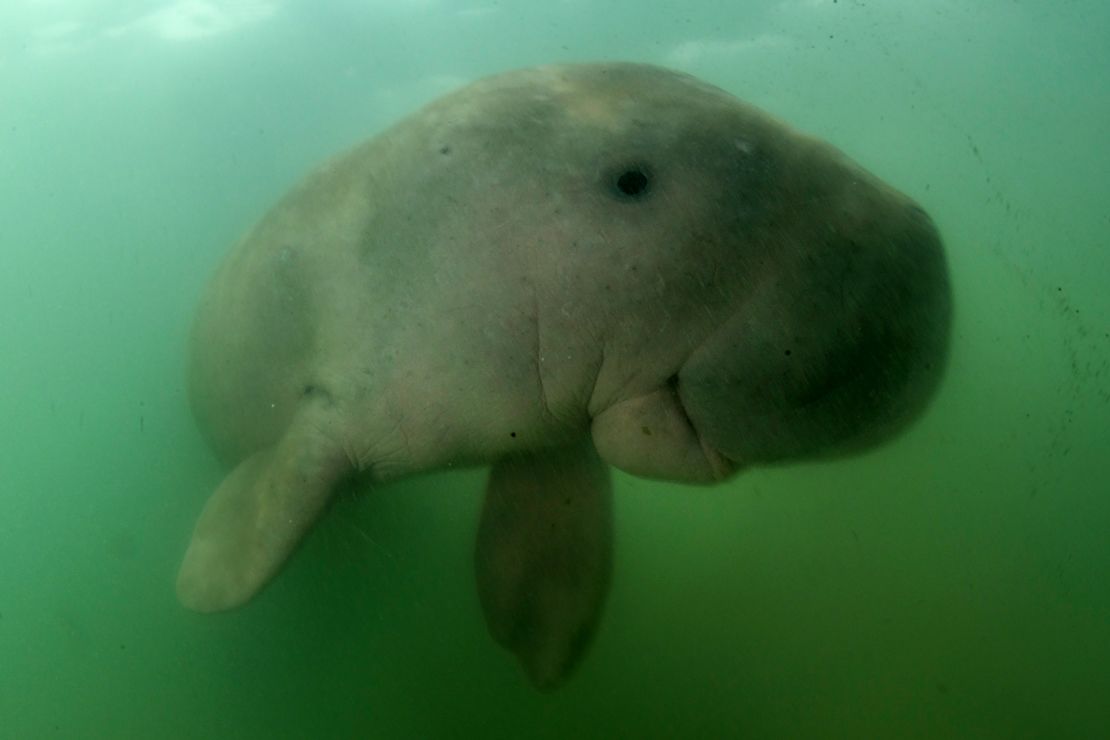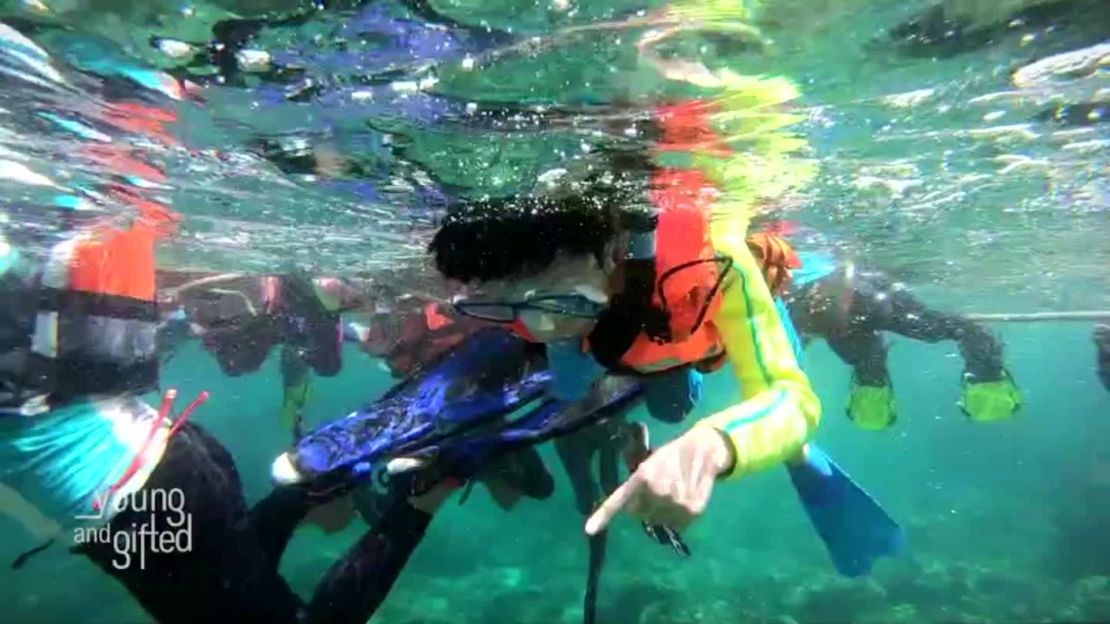Marium, an orphaned baby dugong, is internet famous in Thailand.
The docile ocean mammal was spotted without a mother near the coast of Krabi, a popular beach destination in Southern Thailand, in April.
Images of her nuzzling marine biologists, who are now tasked with feeding motherless Marium up to 15 times a day, went viral.
Part of a social campaign to raise awareness about the threatened creatures was Thai actor and conservationist Alex Rendell, who posted about Marium on Instagram.

He saw the baby by chance on a boat trip with some students from his foundation, Environmental Education Center Thailand (EEC), which teaches kids about conservation through camping.
Connecting people to wildlife
Dugongs are a species of sea cow which graze on sea grasses in the Indian and Pacific oceans. They are listed on the IUCN Red List as “vulnerable” and are threatened by habitat loss, hunting and pollution.
Rendell believes that it is his responsibility to use his fame to communicate environmental issues to the Thai public, by directly connecting people to wildlife.

“Marium is very famous in Thailand right now. This wouldn’t have happened three or four years ago,” said Rendell. “No one would even know what a dugong was.”
“Let nature be your classroom”
EEC Thailand runs camps focused on researching dugongs, as well as leatherback sea turtle conservation and creating buoys to protect coral reefs. The camps are based on the idea that once you understand the environment, you will be motivated to protect it.
“People obviously will say that plastic is bad for the ocean, it’s bad for marine life, which is true, but I’ve actually seen animals die,” Rendell explained. “To be able to see that, it’s a great impact to the way you think.”
Rendell estimates EEC teaches almost 1,000 kids a year. He hopes that children will be able to pass what they learn on to their parents and peers.
“We pay a lot of attention on kids becoming advocates,” he said. “They go back, and they tell their parents ‘You’ve got to stop doing this… because this is actually harming the ocean.’”
Watch the video above to find out more.

